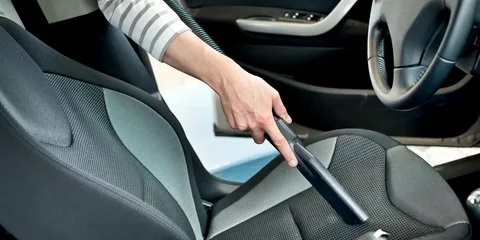When it comes to vehicle care, most drivers focus on exterior shine and interior cleanliness. But one crucial element often goes unnoticed—the air you and your passengers breathe. The air quality inside your car plays a vital role in your comfort and overall health, especially for people with allergies or respiratory conditions. If your vehicle has an unusual odor, or your vents blow weak or musty air, it's time to consider a Car Air Duct Cleaning.
Why Clean Air Inside Your Car Is Important
According to research, the average driver spends several hours each week in their car, often with windows rolled up and air recirculating. This enclosed environment can trap pollutants such as:
-
Dust and dirt
-
Pollen and allergens
-
Mold spores
-
Bacteria and viruses
-
Smoke and pet dander
Over time, these pollutants build up inside the ventilation system, affecting both the air you breathe and your HVAC system’s performance. Regular cleaning ensures a healthier and fresher environment during your travels.
Common Signs of Contaminated Car Air
If you're unsure whether your car's air system needs attention, keep an eye out for these warning indicators:
| Symptom | Likely Cause |
|---|---|
| Damp or unpleasant odor from vents | Mold or mildew in HVAC system |
| Allergic reactions while driving | Pollen, dust, or bacteria in air ducts |
| Poor airflow from the dashboard | Clogged filters or dirty air ducts |
| Foggy windows or excess humidity | Ineffective air circulation |
| Fatigue or headaches during travel | Stale or polluted cabin air |
Practical Tips to Improve In-Car Air Quality
Improving air quality inside your vehicle doesn’t have to be difficult. Follow these steps to create a cleaner, healthier atmosphere:
1. Change the Cabin Air Filter
The cabin air filter captures pollutants before they enter the cabin through the HVAC system. Over time, it becomes dirty and less effective. Replacing it every 12,000 to 15,000 miles—or as recommended by your car manufacturer—can make a noticeable difference in airflow and air freshness.
“Clean air begins with clean filters. A small maintenance step can deliver big health benefits.” — Vehicle Maintenance Expert
2. Get the Air Ducts Professionally Cleaned
Professional car air duct cleaning targets contaminants that basic cleaning can’t reach. Technicians use specialized equipment to remove dirt, dust, and microbial growth deep within the ducts. Many services also include the application of a safe disinfectant to eliminate bacteria, mold, and mildew.
3. Use a Portable Car Air Purifier
Installing a compact air purifier can help eliminate airborne particles like smoke, allergens, and fine dust. These devices are especially beneficial for those who drive frequently in polluted urban environments or suffer from respiratory issues.
4. Avoid Smoking or Eating Inside the Vehicle
Smoke particles and food odors tend to stick to upholstery and infiltrate the air system. Over time, these smells circulate through the air vents, leading to a persistent, unpleasant atmosphere.
5. Let Fresh Air In Occasionally
While climate control systems are convenient, they recycle the same air. On mild days, crack your windows open for a few minutes to allow fresh air to enter and stale air to exit, preventing mold and odor buildup.
What Professional Car Air Duct Cleaning Involves
Hiring a certified professional for Car Air Duct Cleaning ensures a comprehensive deep-clean of your vehicle's HVAC system. Here's what most services include:
-
Inspection of the ductwork and vents
-
Dislodging and vacuuming out built-up debris
-
Treatment with antibacterial or antifungal agents
-
Optional deodorizing or ozone treatment
-
Cabin filter replacement or cleaning
Key Benefits:
-
Elimination of harmful microbes and allergens
-
Fresher smelling interior
-
Better airflow and HVAC performance
-
Improved comfort for drivers and passengers
-
Healthier breathing conditions, especially for children or those with sensitivities
DIY Cleaning vs. Professional Service
Many drivers attempt to clean their air systems on their own using sprays or vacuum extensions. While these efforts can help to some extent, they often fall short of providing the deep clean required for lasting air quality improvement.
| Factor | DIY Effort | Professional Cleaning |
|---|---|---|
| Effectiveness | Limited surface cleaning | Full system sanitization |
| Tools Required | Basic tools (brushes, sprays) | Industrial-grade vacuums and foggers |
| Time Commitment | 30–60 minutes | 1–2 hours |
| Long-Term Results | Temporary relief | Long-lasting freshness |
| Cost | Low upfront | Higher upfront, greater value |
When Should You Schedule a Car Air Duct Cleaning?
Routine cleaning is key to keeping your car’s ventilation system in top shape. Consider scheduling a cleaning service if:
-
You notice an unusual smell from vents
-
Your allergies worsen while driving
-
Airflow seems weak or inconsistent
-
You’ve recently bought a used vehicle
-
You transport pets or drive in dusty areas frequently
Final Thoughts
In-car air quality has a direct impact on your comfort, health, and even your mood while driving. Dust, bacteria, and pollutants can quietly accumulate in your vehicle’s ventilation system without you realizing it. Taking simple steps like replacing the cabin filter, keeping the interior clean, and investing in a thorough air duct cleaning can drastically improve the environment inside your vehicle.
Don’t wait for your car to smell bad or your allergies to flare up before taking action. Breathe cleaner, drive fresher, and protect your family’s health by scheduling a Car Air Duct Cleaning today.
Read more: Air Duct Sealing
.jpg)
0 Comments